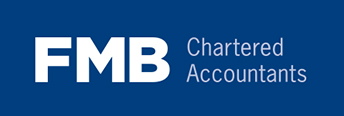The Irish Hotels Federation has called on all political parties and candidates in the General Election to commit to policy measures aimed at staving off the commercial crisis facing the wider tourism and hospitality industry – particularly food service businesses.
Launching its manifesto, IHF President Michael Magner said an urgent change in direction is now required to ensure the future viability of the industry as the country’s biggest largest indigenous employer.
The IHF today called for an urgent review of the Government’s tourism policy approach, saying that a change in direction is required to put the tourism and hospitality industry on a stable footing before it is too late.
It has also called for the reinstatement of the 9% rate of VAT for hospitality food service businesses, which it said are struggling to deal with exceptionally high operating costs.
It is urging election candidates to look at targeted measures to improve the overall cost competitiveness within the economy over the next five years and wants increased funding for hospitality training and skills development through the National Training Fund.
The federation is also calling for the removal of the passenger cap at Dublin Airport, along with a wider focus on enhancing regional air access and connectivity.
A significant increase in investment in tourism marketing and development to support the recovery and long-term growth is also being sought, while the IHF said that targeted funding for a national hotel retrofitting scheme to reduce carbon footprint throughout the sector in line with the country’s climate action goals is also needed.
The IHF also stated that a full review of State-supported financing solutions for business development should be carried out to identify ways to further increase access to finance, while it wants a dedicated Department of Tourism & Hospitality with a seat at the cabinet to maximise growth and employment potential.
Tourism and hospitality supports over 270,000 livelihoods through the country, including 65,000 people directly employed by hotels and guesthouses.
About 70% of tourism and hospitality jobs are outside of Dublin and the industry generates over €10 billion in revenues for the economy annually.
Michael Magner said that tourism and hospitality businesses are facing enormous challenges as a result of unsustainable cost increases, which have largely been driven by the Government’s own economic policies.
“At the same time, there has been a worrying failure to offset these increases and provide meaningful measures to assist struggling business within the sector,” he said.
“Our message to all political parties and candidates in the general election is that tourism and hospitality should not be taken for granted. Much more needs to be done to safeguard and prioritise our industry,” he said.
“Tourism and hospitality must be at the heart of the next Government’s economic policy supported by targeted measures to ensure our industry lives up to its full potential as a major engine for growth and economic prosperity, both nationally and regionally,” he added.
Article Source – IHF calls for urgent action to safeguard tourism and hospitality sectors – RTE






